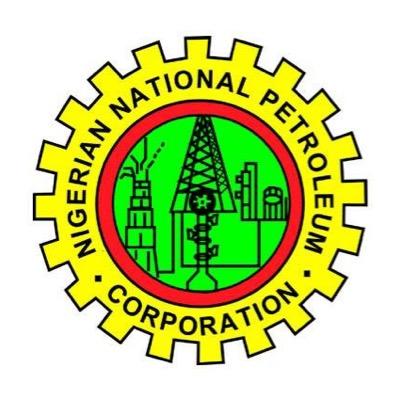Lagos – Nigerians are worried that despite huge spending on fuel importation by the emerging sole importer, the Nigerian National Petroleum Corporation (NNPC), product scarcity and higher prices still linger, with the resultant continued impoverishment of the citizens.
When NNPC, last week, told Nigerians that it has imported 9.8 million metric tons of Premium Motor Spirit (PMS) worth $5.8 billion to combat the fuel crisis that resurfaced since late last year, not many Nigerians understood the logic behind the spend that has not wholly nipped the scarcity of the product hitherto.
Despite the claim by the Group Managing Director of the corporation, Maikanti Baru, that the era of scarcity is gone, however, the scarcity, which reared its ugly heads since last December has refused to subside despite the continuous importation of the product by the corporation and the clampdown on marketers suspected to be hoarding fuel for profiteering motive.
Sunday INDEPENDENT investigations showed that government is just bidding time on the upward review of the pump price since it has jettisoned full deregulation and also stocked to reviving old and outdate refineries at the expense of tax payers. Further investigations also showed that apart from some capital cities like Lagos, Abuja and Port Harcourt, other parts of the country sell above the regulated price of N145/litre.
“Even at that, there are parts of Lagos where the product sells above the regulated price and this is known to the people,” says Friday Ameh, energy analyst.
In his new year address to Nigerians, President Muhammadu Buhari had blamed saboteurs for the frightening scarcity and vowed to bring them to book in order to deter others from the crime.
Observers wondered how the scarcity and price differentials in the cost of fuel has continued to dot the service stations in the country, fuelling fears that increase in the pump price of the product is in the offing in Nigeria.
They also wondered why the NNPC appears to be the sole importer of the product which Baru, had during a public hearing by the Senate Committee on Public Accounts recently at the National Assembly Complex in Abuja, explained that the corporation’s intervention became necessary due to the inability of the major and independent marketers to import the product because of the high landing cost, which made cost recovery and profitability difficult owing to the regulated price regime.
Assuring the public of adequate product supply, the GMD, however, maintained that cross-border smuggling due to price disparity between Nigeria and neighbouring countries where a litre of petrol sells above N350 per litre as well as logistic issues in tracking products to different locations across the country remained serious challenges in the quest for fuel queue-free situation in the country.
“For how long will government officials continue to blame borders or issue of logistics for their failings. GMD’s reasons are not acceptable by any standard, considering the fact Nigeria is considered as the largest importer of fuel today. It is a collective shame on all of us for this development,” says Ameh.
No Uhuru Yet
A recent survey conducted by “NOI Polls’’ says 86 per cent of Nigerians buy petrol at an average of N199 per litre, adding that the amount was far above the N145 per litre price approved by the Federal Government.
It said its finding was in conjunction with the National Bureau of Statistics (NBS) Petrol Price Watch Report, which revealed that Nigerians bought petrol at an average of N191 per litre in January.
The firm said that the result of the poll, which was conducted on February 5, also highlighted the need for stakeholders in the oil and gas sector, especially the DPR to intensify effort.
It said: “The prevailing price of petrol was also ascertained and results revealed that an overwhelming proportion of about 86 per cent of Nigerians disclosed that they buy petrol above the official price of N145.
“And this assertion cuts across gender, geo-political zones and age groups, with each demography having more than 70 per cent of the respondents indicating that they buy petrol above the official price in their respective region.
“Further analysis revealed that of all the various prices mentioned by respondents, Nigerians buy a litre of petrol for an average price of N199 nationwide. Also, residents in the North-West zone pay the highest average price of N221 for a litre of petrol, while respondents resident in the South-West zone pay the lowest average price of N179 per litre.” It said.
It added that although petrol scarcity seems to have disappeared, most Nigerians still buy petrol above the official price of N145 per litre and at an average of N199 per litre nationwide, according to the News Agency of Nigeria.
Long Walk To Appropriate Fuel Price
The efforts to nip scarcity in the bud so soon may not happen as expected, as according to Ibe Kachikwu, Minister of State for Petroleum Resources, until Nigeria addressed the inappropriate pricing of petroleum products, fixed existing refineries and encouraged private investors to build new ones.
He spoke at the recent International Petroleum Summit in Abuja, where he said unless current prices of the products were reviewed to make them more profitable, the problems in the sector would endure.
“Ultimately, the greater challenge that this country would have and still have is that of pricing. Everybody wants power, available gas and freely delivered fuel with no queues, but people are not willing to make the sacrifices that are essential for these things to happen,” he added.
Doubts
But observers in the sector and the Independent Petroleum Marketers Association of Nigeria (IPMAN) said the corporation’s spending would not nip fuel scarcity in Nigeria in the bud.
Energy expert, Tayo Ilesanmi told Sunday INDEPENDENT that inasmuch as the NNPC’s spending actually helped to some extent resolve fuel scarcity in the country, expending such huge amount of money on import is not sustainable to the nation’s economy and its foreign reserves.
“I think the Federal Government would do the nation good by bringing back to life the refineries in the country as well as creating an enabling environment for the private sector to invest in refineries. The idea of modular refineries is a very laudable one and government should give more bites to the project to enable it come to fruition,” Ilesanmi said.
Besides, IPMAN said the lingering fuel hitch in Nigeria is due to lack of capacity of the NNPC to meet up with the nation’s petroleum consumption demand.
Alhaji Debo Ahmed, Chairman, IPMAN Western Zone of IPMAN, said none of the NNPC/PPMC depots within the western zone has adequate petrol to cater to the demands of the public.
“The management of NNPC should increase petrol allocations to IPMAN marketers rather than allocating excess products to NNPC retailers who have less than 25-outlet within Lagos. IPMAN that has over 2,500 members and over 500 outlets across the Southwest was given 30 per cent against 60 per cent agreed by NNPC and marketers,” he said.
Ahmed said that most IPMAN members had to close their filling stations due to the inability of NNPC/PPMC to distribute products to depots for marketers to load adequately.
Anefi Mohammed, a Lagos based businessman and Vice Chairman, International Freight Forwarders Association (IFFA), Ports and Terminal Multipurpose Services Limited (PTML) chapter, Tincan Island Apapa, in a chat with Sunday INDEPENDENT blamed the government for the hardship Nigerians are facing as a result of persistent fuel crises.
He said that three years ago, “the government made us believe that in a space of one year, we will not have anything to do with fuel scarcity in Nigeria. They made us believe and accept the fuel pump price they were giving to us, which we accepted at N145 per litre. They have sold fuel for N145 per litre for about three years now and we are back to the same old story of fuel scarcity. This is very-very bad. I don’t know why we have to find ourselves in this type of mess. I don’t know why the government is not serious on the issue.”
The frontline freight forwarder was worried that the much talked about modular refineries was yet to materialise.
“We have been talking about modular refineries, up till now, there is no one on ground. We are still importing. The marketers cannot go into importation now because of the high exchange rate, because of the increase in the price of crude oil”.












